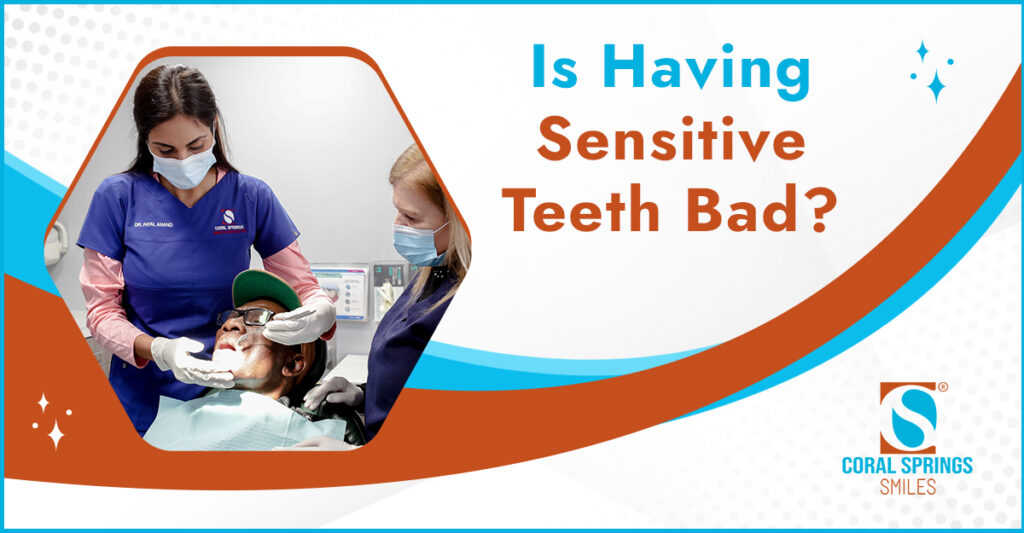
If you’ve ever cringed at the thought of biting into ice cream or sipping on a hot beverage, you’re likely familiar with the discomfort of sensitive teeth. It’s a common issue that affects millions of people worldwide. But is having sensitive teeth something to be worried about? Let’s delve into the intricacies of tooth sensitivity to understand its causes, implications, and how to manage it effectively.
What Is Tooth Sensitivity?
Tooth sensitivity, also known as dentin hypersensitivity, occurs when the enamel protecting our teeth becomes thinner or when gum recession exposes the underlying surface, called dentin. Dentin contains tiny tubules that lead to the nerves inside the tooth. When exposed, these tubules allow hot, cold, acidic, or sticky substances to reach the nerves, resulting in a sharp, temporary pain.
How Does It Happen?
Several factors can contribute to the development of tooth sensitivity:
Brushing Too Hard: Aggressive brushing can wear down enamel and exposed dentin.
Acidic Foods and Beverages: Consumption of acidic substances can erode enamel over time.
Gum Recession: Receding gums expose the tooth’s roots, which are not protected by enamel.
Tooth Grinding: Habitual grinding can wear down enamel and lead to sensitivity.
Dental Procedures: Certain dental treatments like teeth whitening or fillings can cause temporary sensitivity.
Is Having Sensitive Teeth Bad?
While sensitive teeth themselves are not harmful to your overall health, they can significantly impact your quality of life. Constant discomfort may deter you from enjoying certain foods and drinks, leading to nutritional deficiencies or poor oral hygiene if brushing and flossing become painful tasks.
Does a Sensitive Tooth Mean Infection?
Not necessarily. Tooth sensitivity doesn’t always indicate an infection. However, it’s essential to differentiate between sensitivity and other dental issues like cavities or gum disease. Consulting with your dentist can help identify the root cause of your sensitivity and rule out any underlying problems.
How Can You Treat Sensitive Teeth?
Fortunately, there are several ways to alleviate tooth sensitivity and improve your oral comfort:
Desensitizing Toothpaste: Specialized toothpaste containing ingredients like potassium nitrate or strontium chloride can help block nerve signals and reduce sensitivity over time.
Fluoride Treatment: Professional fluoride applications at the dentist’s office can strengthen enamel and decrease sensitivity.
Dental Sealants: Applying a thin layer of protective sealant can shield exposed dentin and reduce sensitivity.
Gum Grafting: In cases of severe gum recession, a gum graft procedure can cover exposed roots and alleviate sensitivity.
How Do You Stop Sensitive Teeth Pain?
In addition to targeted treatments, making simple lifestyle changes can also help alleviate sensitivity:
Use a Soft-Bristled Toothbrush: Opt for a soft-bristled toothbrush and gentle brushing techniques to avoid further enamel erosion.
Avoid Acidic Foods: Limit your intake of acidic foods and beverages that can contribute to enamel erosion.
Practice Good Oral Hygiene: Maintain regular brushing, flossing, and dental check-ups to prevent plaque buildup and decay.
Wear a Night Guard: If you grind your teeth at night, wearing a night guard can protect your enamel and reduce sensitivity.
When to Call the Dentist
If you experience persistent or severe tooth sensitivity despite home remedies, it’s crucial to seek professional dental care. Additionally, if sensitivity is accompanied by other symptoms like swelling, bleeding gums, or toothache, it may indicate an underlying dental issue that requires immediate attention.
In conclusion, while having sensitive teeth isn’t inherently bad, it can certainly detract from your overall oral health and quality of life. By understanding the causes of sensitivity and implementing appropriate treatments and preventive measures, you can effectively manage sensitivity and enjoy a pain-free smile.
Remember, at Coral Springs Smiles, we’re dedicated to providing compassionate dental care tailored to your unique needs. Don’t let tooth sensitivity hold you back from smiling confidently. Schedule your appointment with us today and take the first step towards a healthier, happier smile.


